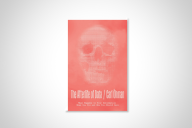You have /5 articles left.
Sign up for a free account or log in.
So henceforth we have a whole new category of eminent religious figure: Pope Emeritus. I don’t know if the expression will catch on, but at least it’s less irreverent than the meme describing the current situation as Popus interruptus. (That’s proper cod-Latin, by the way. Please don’t feel obliged to correct the grammar.)
It can’t continue this way for long. Easter falls on the last day of this month; as a Catholic friend puts it, “The show must go on.” Those of us who are neither believers nor gamblers have no real investment in the outcome, of course. But the office and its claim to authority are intriguing, even so, and I spent part of the weekend reading a couple of dialogues between Vatican dignitaries and eminent secular thinkers.
The most recently published of them, Belief or Unbelief: A Confrontation (Helios Press, 2012), is also, oddly enough, the earlier of the two. It consists of a series of open letters exchanged, in the pages of a newspaper, between Umberto Eco and Carlo Maria Martini, the former archbishop of Milan, who at the time of his death last year was a cardinal. In his introduction to Belief or Nonbelief?, the Harvard theologian Harvey Cox notes that Martini -- besides being a prominent scholar of the New Testament and the organizer of an annual standing-room-only lecture series for nonbelievers -- had been spoken of “as a possible future pontiff.”
The occasional reference in their dialogue suggests that it originally took place circa 2000 as part of what Florian Schuller, the director of the Catholic Academy of Bavaria, calls “a very intensive, open, and committed discussion” under way in Italy “between intellectual representatives of the credenti (‘believers’) and the laici (‘secular persons’).” The colloquy between Jurgen Habermas and Joseph Ratzinger making up The Dialectics of Secularization: On Reason and Religion (Ignatius, 2006) was held at the Academy in early 2004, about 15 months before the cardinal became Pope Benedict XVI.
From Schuller’s introduction to The Dialectics of Secularization, it’s clear that the exchange between the philosopher and the pontiff-to-be was arranged with the example of the Italian discussions in mind. Schuller sounds an almost diffident note. “We in Germany,” he writes, “seem to lack a common philosophical dialogue on the basis of different positions that are interested in each other (as in Italy) or structures that permit a plurality of world views to engage in a societally institutionalized yet completely free conversation on a high level of reflection (as in France).”
On the other hand, Habermas can engage in a public dialogue on religion and secularity without anyone expecting him to clarify whether or not he believes that Adam and Eve shared Eden with the dinosaurs (as in America). No doubt Schuller’s chagrin is heartfelt, but from this side of the water it can be difficult to credit.
Max Weber once referred to himself as “religiously unmusical” – not hostile to religion, that is, but temperamentally unable to respond to whatever it is that inspires or motivates faith. To judge by his writings on religion over the past decade or so, Habermas is a religiously unmusical person trying very, very hard to feel the rhythm. By contrast, Eco can actually carry a tune (he cites Thomas Aquinas with an evident passion for nuance and implication) even if he says he lost his faith in his early 20s and addresses Cardinal Martini from the standpoint of a nonbeliever.
In his exchange with Ratzinger, as elsewhere, Habermas maintains that (1) the modern, democratic, constitutional state does not require metaphysical legitimation, but (2) religious traditions, which do involve large claims about the nature and meaning of the universe, provide something crucial to making society livable, since they transmit and sustain values that otherwise would be pretty scarce.
All citizens may be equal in the eyes of the law, at least in principle. But recognizing formal equality is one thing, and respecting the dignity of others, or feeling an imperative to reduce their suffering, is quite another. It is, in short, a careful if rather vigorless effort by an adherent of “methodological atheism” (as Habermas describes himself elsewhere) to acknowledge that religious faith is not just the un-integrated remnant of pre-modern culture.
Nothing in Eco’s open letters to Martini is incompatible with what Habermas has to say, but they strain less to make room for the idea that believers and non-believers might be sharing a world together, rather than just putting up with each other. He begins with the point that even the most secular-minded people may find something fascinating about the biblical notion of an apocalyptic end of the world. And in the book’s closing pages he writes, “I’m not in favor of instituting a clear-cut opposition between believers in a transcendental God and those who don’t believe in any notion of a superior being.”
Eco and Habermas, then, are Unitarian Universalists, in the sense of the old joke that UUs believe in one God at the most. And their opposite numbers from the Vatican are as patient and indulgent of them as possible. It is the appropriate response to dealing with thinkers who are stumbling in the general direction of absolute Truth. (Lest my Catholic mother-in-law read this and take it the wrong way, let me make clear that it’s Martini and Ratzinger who regard the church as possessing absolute Truth. Indeed, they both spell it with the capital T.)
The worldly philosophers struggle valiantly to make some accommodation between the pious and the profane. The cardinals respond in kind. But in the end, each poses what is essentially the same question to their interlocutors. “It’s difficult for me to see,” Martini admits, “how an existence inspired by” the standards of “altruism, sincerity, justice, solidarity, [and] forgiveness” can be upheld universally “when their absolute value is not founded on metaphysical principles or a personal God.” Ratzinger warns of “the hubris of reason that is no less dangerous” than blind faith. The atomic bomb is preeminently the product of human intelligence exercising itself. And what guidance will keep us from succumbing to that hubris? It can only come from Whoever created reason in the first place.
Not a new thesis, by any means. It's one of the oldest strategems of Christian apologetics: You value compassion, charity, forgiveness, etc. Those values must have a basis, or else they are arbitrary. And if you don't think they are arbitrary (if you don't think that the difference between empathy and viciousness is simply one of taste), then you implicitly believe they have a source, hence a creator, hence God. The merits of the argument have been debated in dormitories for ages, and in the Vatican for even longer. But Eco insists on a reality that can't be reasoned away:
"It seems evident to me that someone who has never experienced transcendence, or who has lost it, can make sense of his own life and death, can be comforted simply by his live for others, by his attempt to guarantee someone else a livable life even after he himself has disappeared. Certainly, there are those nonbelievers who are not at all worried about giving meaning to their own death. There are also those who claim to be faithful but would be willing to rip the heart from a living baby in order to preserve their own lives. The power of an ethical system is judged by the behavior of the saints, not by the benighted cuius deus venter est [whose god is the belly]."
Eco is suggesting, then, that there are unbelieving saints, just as there are pious psychopaths. I have no idea how they would get canonized, but it's an uplifting idea.








